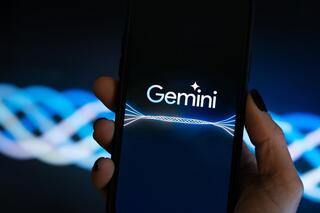
Are you plugged into the latest buzz in the AI universe? Meet the Jarvis AI agent—a digital assistant ready to handle your computer tasks, taking over those mundane, repetitive chores and potentially executing them with more finesse than ever before. The headline from The Information injected a jolt of excitement into this scene: "Google is developing AI to take over computers." It echoes those classic AI apocalypse scenarios where humanity meets its end, which probably explains why it became the media darling and a hot topic of conversation.
It's been ages since a forthcoming Google product captured such widespread intrigue. 2 View gallery Gemini ( Photo: Sadi-Santos / Shutterstock ) The vision: A post-chatbot world Enter "Project Jarvis," the latest from Google's Gemini series—a cutting-edge AI model poised to revolutionize how we interact with our computers. Imagine Jarvis conducting market research, shopping online, booking flights, planning vacations, and even diving deep into research on topics that pique your interest.
This groundbreaking tool is set to debut to the public at the unveiling of the new Gemini model this December. From what we can glean about this groundbreaking technology, it’s all about the AI agent revolution—an AI that can tackle various tasks based on our directives. This is what's lighting up Silicon Valley right now, the next big leap in AI evolution with ambitions to eventually outpace chatbots for certain uses.
Jarvis isn't going to be just any AI tool; it's designed to run via your browser, specifically in Google's Chrome—An easy way to further distinguish Chrome from the competition. In practice, Jarvis is here to supercharge your daily routine by automating those repetitive tasks you usually handle. While the concept of robotic process automation (RPA) has been around for a bit, the tech is now ripe for action.
Jarvis is set to read your screen with human-like insight, grasping the meaning behind every menu, message, or image it encounters. It’ll take on tasks from you, search for data, retrieve information, and execute actions on your behalf—as if you were the one typing and clicking all along. The race is heating up! Just recently, Anthropic, a heavyweight rival to Google and OpenAI, launched a fresh version of its chatbot "Claude," dubbed Sonnet.
The mission? To empower your computer to handle tasks autonomously by recognizing both text and graphics on your screen, deciphering actions, and seamlessly executing tasks like typing, uploading files, and transmitting data until it nails the outcome you want. Meanwhile, Apple is gearing up to roll out similar AI capabilities in its future tech. 2 View gallery ( Photo: Shutterstock ) At the same time, Microsoft is stepping up its game with the next evolution of Copilot Studio, featuring a robust platform for crafting AI agents tailored for business needs.
Originating back in 2019 as Power Virtual Agents, Microsoft is now declaring it ready for prime time. This platform is set to train AI-powered sales reps, shopping assistants, customer service agents, and more—all intelligent, AI-driven entities designed to revolutionize the way we work. An absolute performance boost, but is it safe? These AI agents are crafted to operate autonomously, either fully or partially, aiming to free up employees' time for more meaningful tasks.
Imagine managing an entire "army" of AI agents with just one person at the helm—talk about optimizing workflows and efficiency! But the AI agent phenomenon is more than just the latest tech craze. With hundreds of billions poured into the AI arena, the pressure is on to deliver returns to investors. The revenue potential from chatbot interactions is finite, which is why we're on the brink of the next evolution—AI that not only justifies its existence but also generates income by functioning as a purpose-driven agent.
The question of safety, however, requires a more nuanced response. As we hand over more complex tasks to AI, the potential for risky decision-making escalates. This is particularly concerning given the relentless push towards developing "superintelligence"—AI that could outsmart humans, known in the field as Artificial General Intelligence (AGI).
Conversely, the prospect of a semi-intelligent agent potentially toppling a company by offering irresistible deals to customers is enough to keep CEOs tossing and turning at night. Consequently, the rollout of AI agents is likely to be cautious and tightly regulated, at least in the early stages. Get the Ynetnews app on your smartphone: Google Play : https://bit.
ly/4eJ37pE Apple App Store : https://bit.ly/3ZL7iNv >.













